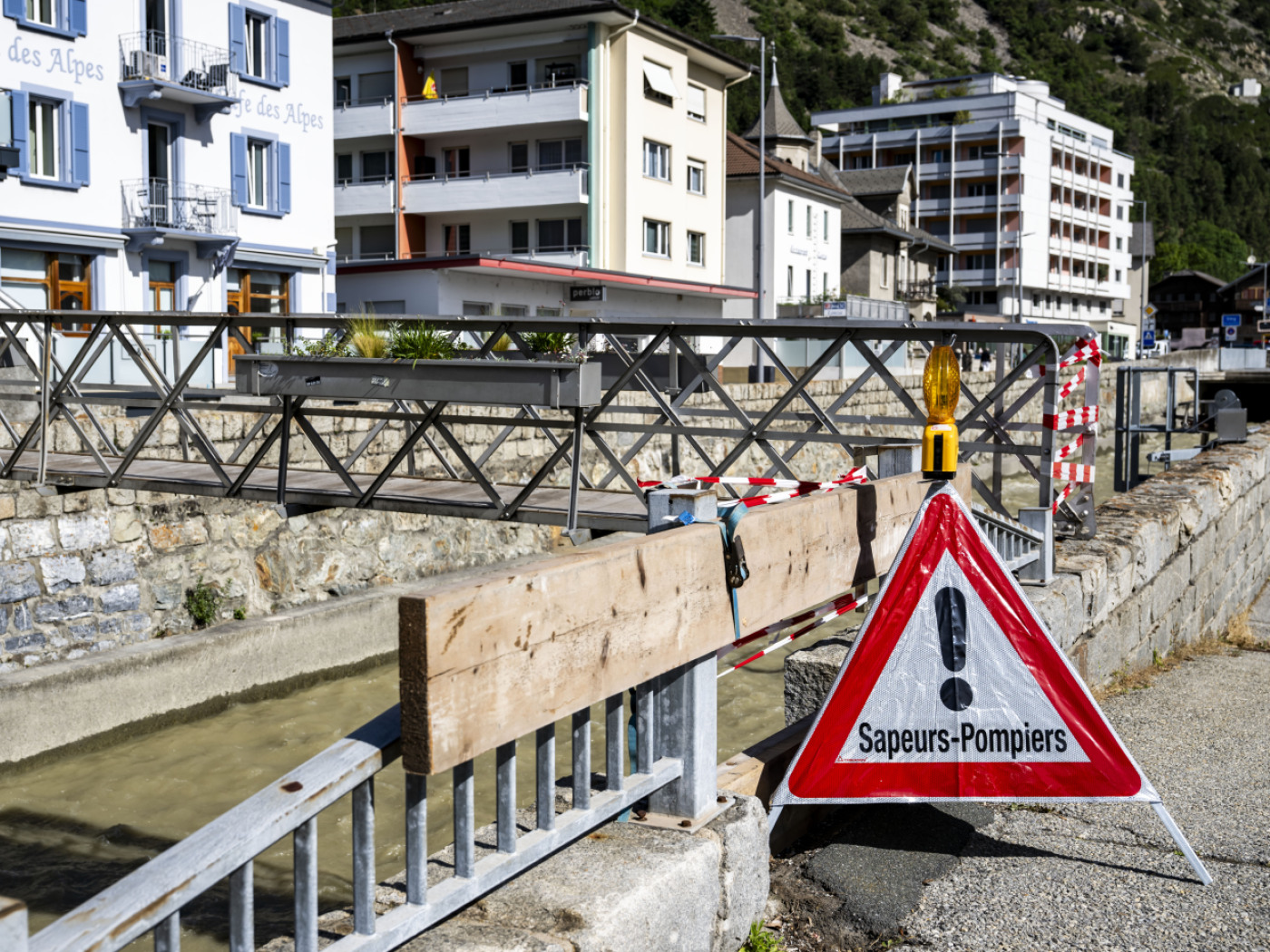
Direct operations too dangerous in Swiss landslide valley

By Friday morning 365 people had been forced to leave their homes because of Wednesday's landslide in the Swiss village of Blatten. The geological situation is still too dangerous for direct operations. The lake behind the debris is under constant observation.
+Get the most important news from Switzerland in your inbox
The River Lonza and the reservoir in Ferden are also being continuously monitored, the Valais State Chancellery said. The canton has installed measuring devices for this purpose. The landslide mass, which is several dozen metres high and around two kilometres long, is blocking the Lonza, which is why a lake has formed.
+ Flood risk threatens Swiss valley after ‘millennium event’ glacier collapse
The canton put the total volume of ice and rock deposits on the valley floor at ten million cubic metres. Over the course of Friday morning, the lake level approached the upper edge of the debris mass. The authorities expected the dammed lake to overflow during the course of the day. In view of this, they increased the storage capacity of the Ferden reservoir.
+ Why do Swiss mountains collapse? It’s complicated
Due to the risks and geological instability, no operations are currently possible in the disaster area, the State Chancellery added. The army is on standby with water pumps, excavators, other heavy clearing equipment and lighting material. Experts from specialised engineering firms, 50 civil defence personnel and around 100 firefighters are also deployed.
The cantonal road from Goppenstein to Blatten remains closed. There are exceptions for local residents and emergency vehicles. The cantonal management body is constantly analysing the situation and is in contact with the regional management teams.
Translated from German by DeepL/ts
How we work
We select the most relevant news for an international audience and use automatic translation tools such as DeepL to translate them into English. A journalist then reviews the translation for clarity and accuracy before publication. Providing you with automatically translated news gives us the time to write more in-depth articles. The news stories we select have been written and carefully fact-checked by an external editorial team from news agencies such as Bloomberg or Keystone.
Did you find this explanation helpful? Please fill out the short survey below to help us understand your needs.
Don’t miss your chance to make a difference! Take our survey and share your thoughts.

In compliance with the JTI standards
More: SWI swissinfo.ch certified by the Journalism Trust Initiative




























You can find an overview of ongoing debates with our journalists here . Please join us!
If you want to start a conversation about a topic raised in this article or want to report factual errors, email us at english@swissinfo.ch.